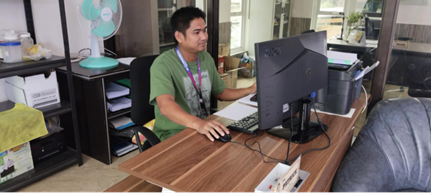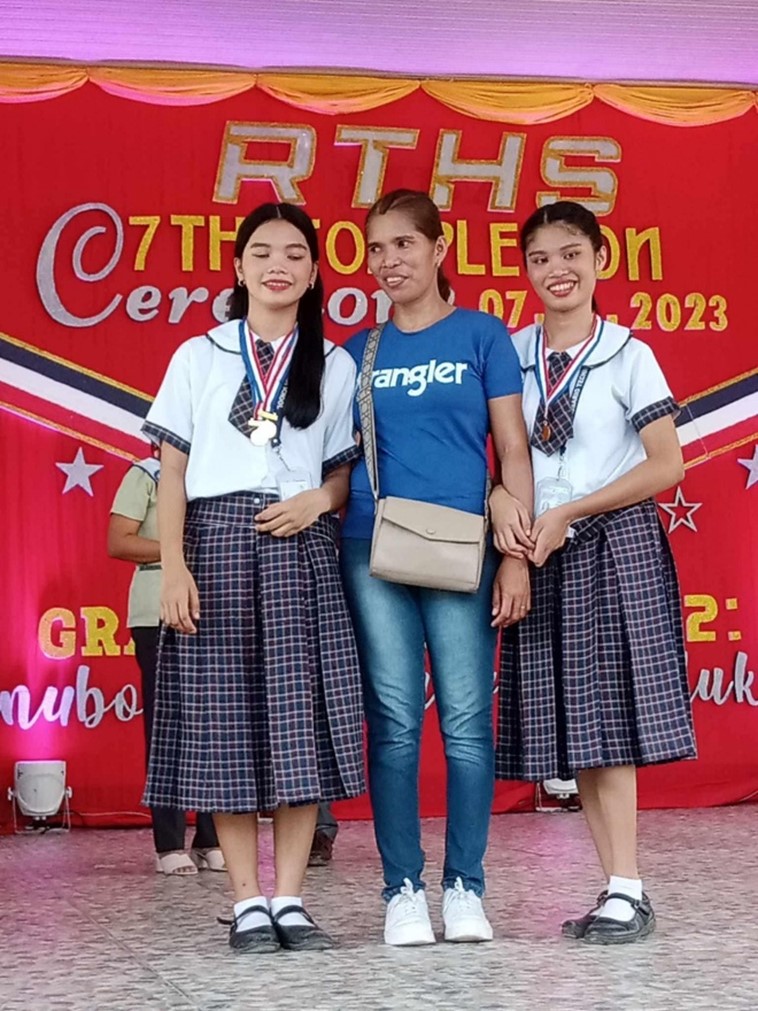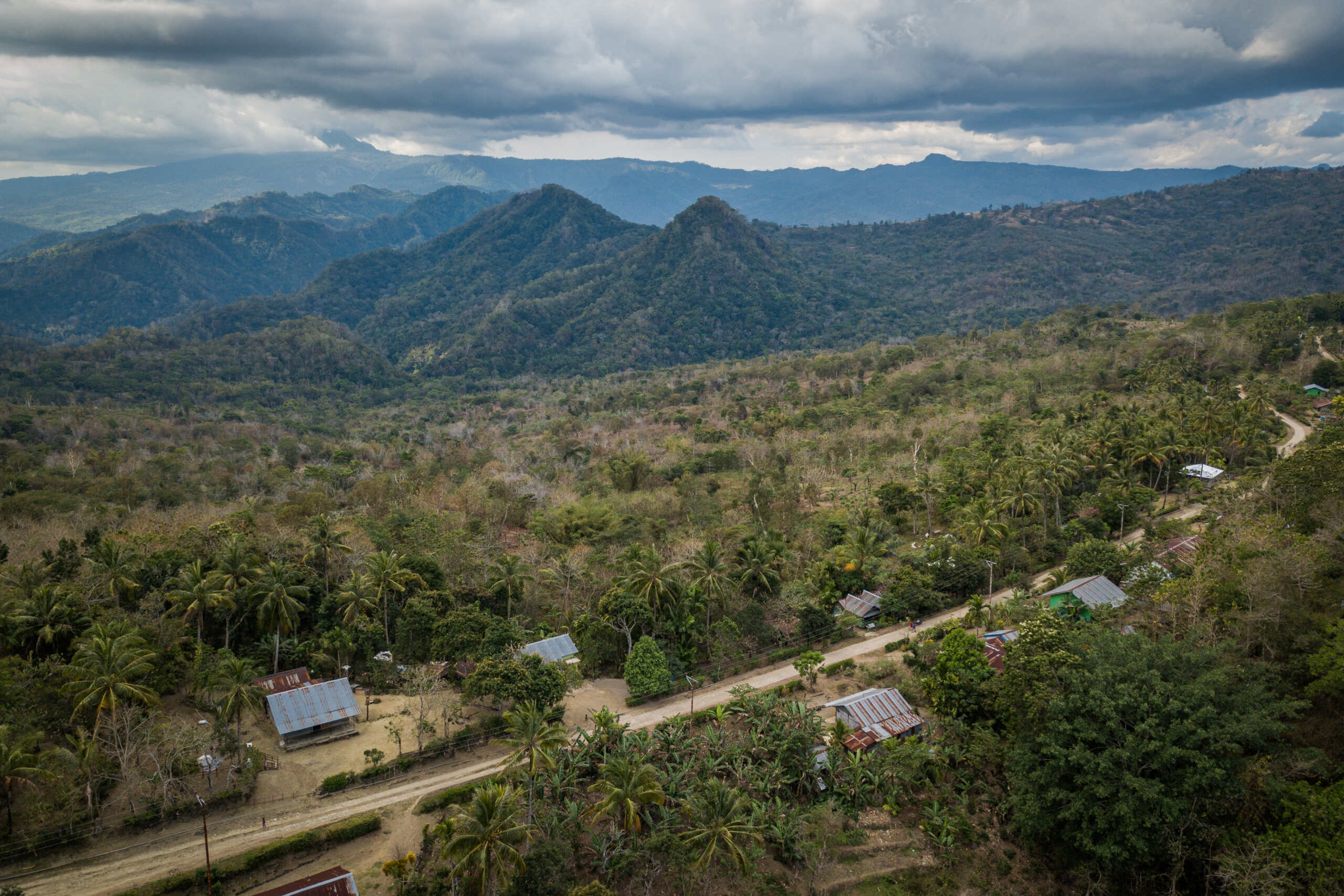How CBM’s work in the Philippines continues to transform lives – over a decade on
Stories | September 29, 2025
In development work, sustainability is often the key measure of success. CBM’s decade-long partnership with NORFIL Foundation in the Batangas province of the Philippines is a shining example of how thoughtful, community-led initiatives can create lasting change – especially for children with disabilities.
From 2002 to 2012, CBM Australia supported the Batangas Project, a Community-Based Rehabilitation (CBR) program aimed at improving the lives of children and youth with disabilities. 1 By working closely with local governments and establishing AKAPIN Batangan, a network of parent-led advocacy groups, the project empowered parents of children with disabilities, strengthened disability inclusion within local governments, supported the development of special education and inclusive disaster preparedness plans, and improved referral pathways for children with disabilities.
More than a decade after the project’s formal phase-out, the ripple effects are still being felt.

Local government ownership and policy change
A lasting success of the project is the integration of disability inclusion into government systems. Local governments now have dedicated officers and committees to oversee the implementation of programs and services for persons with disabilities, accessible infrastructure, and dedicated budgets for disability-related programs. These not only register individuals with disabilities but also ensure access to benefits like PhilHealth and discounted services.
The project’s early emphasis on formal handover and multilevel training for government staff created a strong foundation. Today, local officials trained by NORFIL continue to champion inclusive policies, with some even receiving national awards for their efforts.
AKAPIN: Parents as changemakers
AKAPIN Batangan has evolved from a support group into a powerful advocacy organisation. With nearly 2,000 active members across 19 municipalities and two cities, AKAPIN plays a central role in disability inclusion—from disaster preparedness and accessible infrastructure to education and healthcare referrals.
The group’s sustainability is rooted in its leadership development model. Parents, once recipients of support, are now peer counsellors, trainers, and even government employees. AKAPIN’s legal registration and accreditation have enabled it to influence local planning and budgeting, ensuring that the voices of families with disabilities are heard.
Transforming lives, one child at a time
A profound impact of the Batangas Project is seen in the lives of children who grew up with its support. Former participants like Anthony Alvin, John Carlo, John Patrick, and Kim have overcome bullying, accessed education, and found employment in places like government offices advocating for others. Their stories reflect not just personal triumphs but the strength of a system that continues to support them.


Images: Christine Joyce and Diane Joy Prado at their completion ceremony for elementary (left) and high school (right) education programs. Supported by NORFIL when they were 6 and 7 years old, the siblings, now 17 and 18, have overcome their visual challenges to achieve excellence.
A model for sustainable inclusion
The Batangas Project demonstrates that sustainability isn’t just about continuing services – it’s about embedding inclusion into the fabric of communities. CBM’s twin-track approach, which combined systemic change with individual empowerment, has created a model that others can learn from.
As AKAPIN continues to advocate for the rights of children with disabilities and local governments deepen their commitment, the ripple effect of CBM’s work expands – reaching new families, shaping policies, and building a more inclusive future for children with disabilities in the Philippines.
CBM Australia acknowledges the support of the Australian Government through the Australian NGO Cooperation Program (ANCP).
Read ‘The Batangas Project: 10 Years of Supporting Children with Disabilities in the Philippines’ report.
Learn more about CBM’s Community Based Inclusive Development approach.
1 At the time of implementation, CBM used an approach known as Community Based Rehabilitation. CBM has since transitioned to the Community Based Inclusive Development (CBID) approach, which focuses on building inclusive communities from the ground up.
https://www.cbm.org.au/stories/how-cbms-work-in-the-philippines-continues-to-transform-lives-over-a-decade-on
Related Stories

Week 3 – Lent series 2026
This week, we’re reflecting with our colleague Christian, Supporter Relationship Specialist at CBM Australia, who turns to John 13:34–35 (NIV): “A new command I give...

Week 2 – Lent series 2026
As we continue our Lent journey, we’re grateful to share a heartfelt reflection from CBM Australia’s Head of Program Impact Operations, Kieran Cummins, who...

Building inclusive, climate resilient communities in Bangladesh
Highlights from DFAT Post’s visit In January 2026, representatives from the Australian High Commission in...
